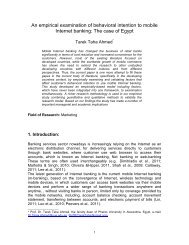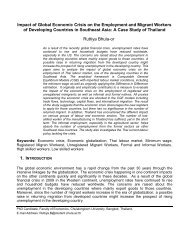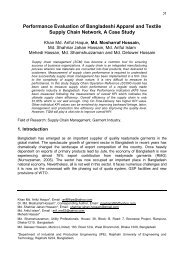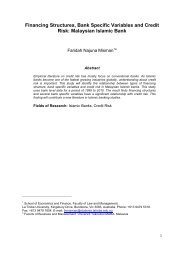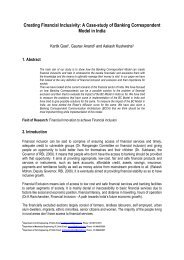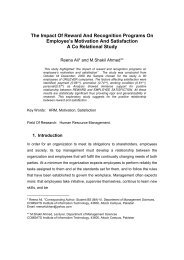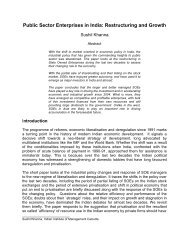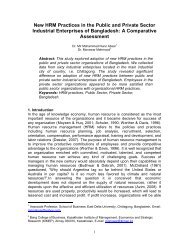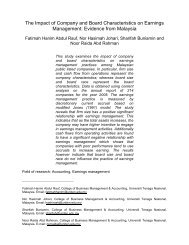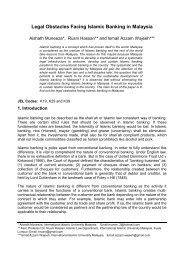Leadership Wisdom: Lessons from Sikhism
Leadership Wisdom: Lessons from Sikhism
Leadership Wisdom: Lessons from Sikhism
Create successful ePaper yourself
Turn your PDF publications into a flip-book with our unique Google optimized e-Paper software.
married. Woman becomes his friend; through woman, the future generations come.When his woman dies, he seeks another woman; to woman he is bound. So why callher bad? From her, kings are born. From woman, woman is born; without woman, therewould be no one at all” (SGGS,473).7.4 The Value of Tolerance:Tolerance is the acceptance of diversity of opinion, social, ethnic, cultural andreligious. It is the ability to listen and accept others, valuing the different ways ofunderstanding and position in life, provided they do not violate the rights of others. Iftolerance is understood as respect and consideration for the difference, as a provisionto admit other ways of being and acting than their own, or as an attitude of acceptanceof legitimate pluralism, it is clearly a virtue of paramount importance for leaders. GuruNanak, The founder of <strong>Sikhism</strong>, preached the message of love and tolerance andopposed the caste system and taught social justice, peaceful co-existence and worldconcern. <strong>Sikhism</strong> is known as the religion of harmony, brotherhood and tolerance. Themost sacred site of <strong>Sikhism</strong> Sri Harmandir Sahib also known as Golden temple hasdoorways on all four sides which symbolizes the tolerance of <strong>Sikhism</strong> – greeting all fourreligions with open arms.Sri Guru Granth Sahib says, “With tolerance, humility, bliss and intuitive poise,they continue to meditate on the Lord, the Treasure of excellence”(SGGS,253). Itadvises that faith, contentment and tolerance are the food and provisions of the angels.They obtain the Perfect Vision of the Lord, while those who gossip find no place of rest(SGGS, 83). It advocates that he Saints are tolerant and good-natured; friends andenemies are the same to them. (SGGS,1356). It implies that leaders must not bereactive but they should behave in a saintly manner and be pro-active. They shouldpossess the patient endurance of trees like humble devotees. (SGGS,1381) Sri GuruGranth Sahib propagates the extreme level of tolerance when it says, “Fareed, do notturn around and strike those who strike you with their fists. Kiss their feet, and return toyour own home” (SGGS,1378).7.5 The Value of Selflessness:Selflessness is about being humble and compassionate. Selflessness lets onededicate his life to helping others. Selflessness is the quality of not putting yourself firstbut being willing to give your time or money or effort etc. for others. It is concerned morewith the needs and wishes of others than with one's own. It focuses on a motivation tohelp others or a want to do good without reward. Selfless service to humanity is aunique concept in <strong>Sikhism</strong>. Selfless Service (Nishkam Seva) is the willingness tosacrifice selfish desires for the benefit of larger interest of others as an indication of loveand commitment. One who is involved in the selfless service of others does not suffer<strong>from</strong> grief to that degree as a person would suffer who is not busy is any such selflessnoble job. The cultivation and practice of selfless service which is termed as NishkamSeva in Gurbani or the Sikh Scriptures - attract God's grace and when He bestows Hisfavor, the Holy Name comes to dwell in that person who performs such service. SriGuru Granth Sahib says, “One who performs selfless service, without thought of reward,



